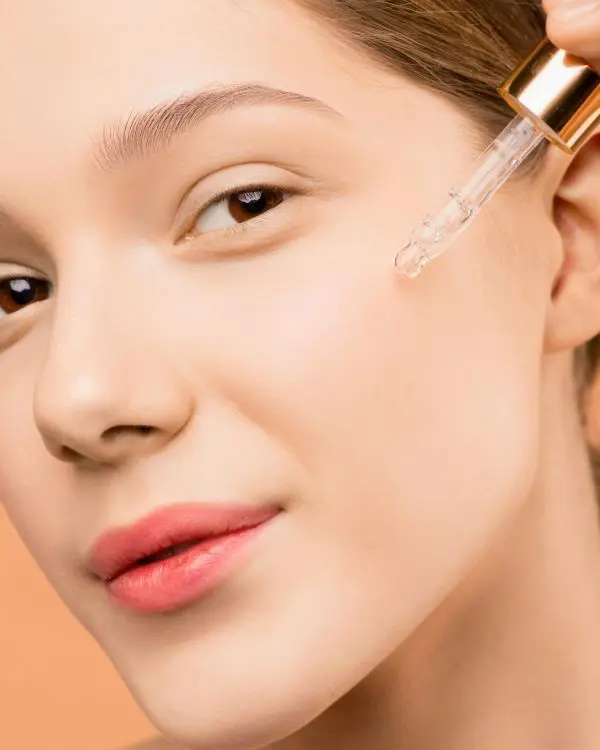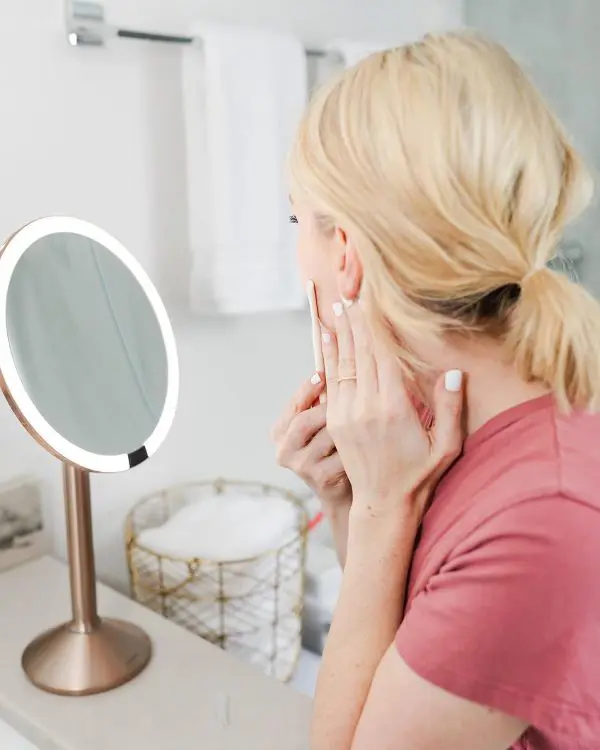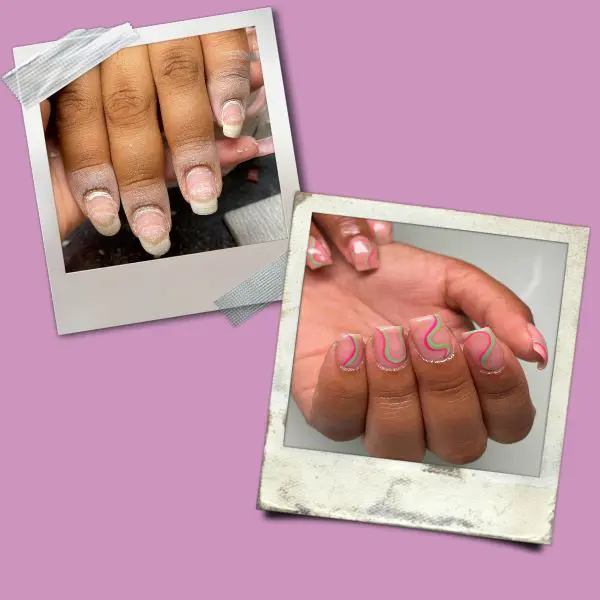Looking to elevate your overall appearance with a single product? Hyaluronic acid could be your choice.
If your goal is smooth, youthful skin or simply super hydration, hyaluronic acid is the ace up your skin's sleeve to work toward that radiant complexion people just won't stop raving about.
Let’s share some juicy knowledge on how to easily maximize these benefits by incorporating hyaluronic acid into our skincare routine for ultimate hydration!
Understand: What Is Hyaluronic Acid?
Hyaluronic acid (HA) is naturally produced by the body, serving as a moisture reserve and helping to enhance skin volume.
It basically keeps the moisture from the environment, supporting healthy skin hydration and elasticity.
It is also a key ingredient in serums, moisturizing creams, and face masks, ensuring facial hydration and suppleness.
Benefits Of Hyaluronic Acid For Skin
• Deep Hydration
Hyaluronic acid's ability to absorb environmental moisture and retain it effectively. Its intense hydration properties help skin cells stay soft while providing moisture throughout the day.
HA is an essential skincare component because it prevents water evaporation, preserving skin smoothness and vitality.
• Anti-Aging Properties
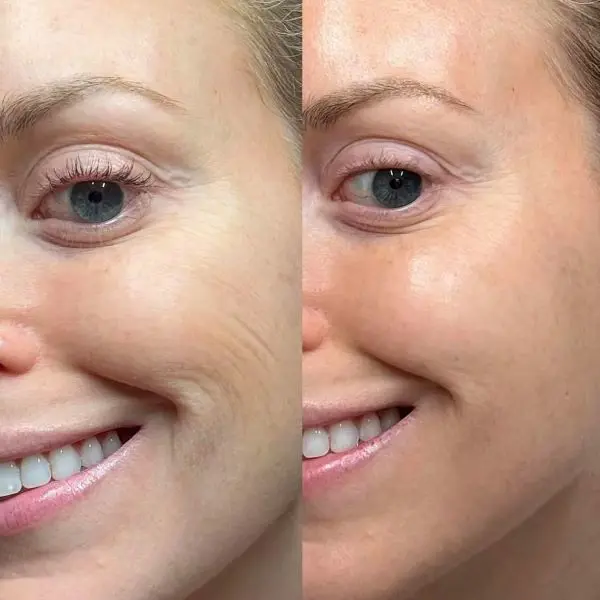
The application of hyaluronic acid creates spectacular anti-aging results through the reduction of facial wrinkles and fine lines.
The skin develops youthful radiant appearance combined with enhanced firmness after absorption of moisture.
Routine application of HA helps maintain dermal elasticity as it lowers the appearance of aging skin changes over time.
• Enhances Skin Barrier
Your skin needs hyaluronic acid to perform its essential barrier tasks properly. Natural defenses within the skin improve significantly through hyaluronic acid use because the barrier function strengthens against pollutants and bacteria.
The skin maintains its water content better, thanks to HA which also safeguards underlying tissue from environmental aggressors thus benefiting individuals with sensitive or impaired barrier function.
• Soothes Inflammation
Being gentle on skin with sensitivities and inflammation, hyaluronic acid provides soothing effects through natural redness reduction and inflammatory relief.
HA reduces discomfort by balancing the skin, leading to a calmer complexion during acne flare-ups or skin sensitivity.
• Boosts Skin Regeneration

The healing process for wounds meets acceleration from hyaluronic acid which demonstrates extraordinary benefits when treating both skin repair and wound healing.
HA stimulates collagen production, which helps tissue heal from damage.
Because of its rejuvenating properties the substance proves beneficial to people working toward accelerating the repair of simple skin injuries and post-acne scarring.
• Lightweight And Non-Comedogenic
The major advantage of hyaluronic acid remains its weightlessness and pore-unblocking properties that prevent pores from becoming clogged.
Hyaluronic acid functions well for every skin type including individuals with oily and accutane skin.
HA hydrates effectively without developing acne so it works well for almost any person trying to enhance their skin condition.
How To Use Hyaluronic Acid Serum In Your Skincare Routine

Step 1: Cleanse
Making a soft cleanser is your first step before bedtime to cleanse your face oil, surface impurities, and dirt.
Your skin can absorb the hyaluronic acid serum more efficiently by leaving behind a clean non-oil condition that helps maintain proper hydration levels.
Choose a germ-free cleanser that helps maintain your skin’s protective layer.
Step 2: Apply HA Serum On Damp Skin
For the best results, apply your HA serum to slightly damp skin. HA works better when it can draw moisture inside the skin, so the dampness really helps to seal in restorative moisture.
Gently dab the serum onto your skin and allow it to absorb before proceeding.
Step 3: Follow With A Moisturizer

Don’t forget to top off your HA serum with a moisturizer! This step seals in the hydration and keeps your skin plump and moisturized all day or night. This locks in moisture and stops it from evaporating.
Step 4: Use Sunscreen In The Morning
Applying hyaluronic acid during daytime needs sunscreen afterward to protect skin from damaging UV rays.
From sun exposure individuals face damages that can speed up their skin aging process while breaking down the benefits their skincare provides.
Select a sunscreen protection with both UVA/UVB rays protection that maintains at least 30 SPF.
Can You Blend Hyaluronic Acid And Vitamin C Together?
The skincare combination of hyaluronic acid and vitamin C provides exceptional solutions for skin care needs.
Vitamin C protects against oxidation and produces skin brightening results and hyaluronic acid delivers hydration combined with skin plumping effects.
First apply vitamin C serum then wait for absorption before moving onto hyaluronic acid serum.
After layering these products a moisturizer serves to enhance their benefits by retaining water in the skin.
Side Effects Of Hyaluronic Acid

As a broad treatment solution hyaluronic acid receives favorable security assessments from experts and shows good compatibility with various skin types.
Occasionally some people experience slight side effects after improper hyaluronic acid use yet these cases remain very rare.
• Mild Irritation
Hyaluronic acid application amounts beyond normal use or repeated daily application can generate slight skin reactions.
Hyaluronic acid use tends to be safe but sensitive skin types might experience redness along with light stinging after usage. A small portion is your best starting point to evaluate skin reactions.
• Breakouts
You can avoid pore clogging despite hyaluronic acid's non-acnegenic properties when used solo because combining it with pore-clogging ingredients will cause breakouts.
Check your total skincare line for pore-clogging agents when you experience skin breakouts.
• Dryness
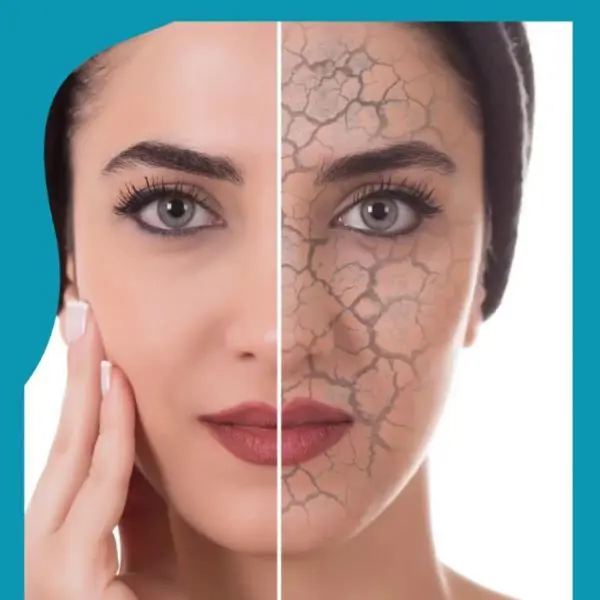
Application of hyaluronic acid to unmoisturized dry skin may lead to temporary deep skin moisture loss since it collects liquid from within layers.
Using a moisturizer following hyaluronic acid gives better hydration results.
Apply Hyaluronic Acid when your skin is wet so you can pair it with a moisturizer which both seals in moisture and maintains skin smoothness.
What’s The Perfect Hyaluronic Mix?
Dry Skin:
Independent use of hyaluronic acid does not suit dry skin effectively.
Apply the moisturizer along with ceramide and shea butter rich moisturizer because these ingredients will protect the skin moisture while preventing evaporation.
The natural ingredients provide continuous support to the skin barrier for dry skin during the day.
Oily Skin

People with oily skin should limit their use of pore-clogging thick creams. For optimal results with hyaluronic acid use it alongside a light gel moisturizer built on hydro base components.
The delivery system flows moisture across the skin without creating an oily upper layer which allows for balanced natural hydration.
Sensitive Skin
People with sensitive skin must use fragrance-free hyaluronic acid serum because it contains no irritating agents.
Aloe vera along with centella asiatica in your skincare products will deliver both hydration and soothing effects to reduce skin redness and enhance healing while protecting the skin barrier.
Combination Skin
A moisture product for combination skin should hydrate dried regions while avoiding the oilier zones on the face.
Add a hyaluronic acid serum under a balanced moisturizer as a way to ensure every area of your skin gets sufficient hydration.
Key Takeaway
Can you use hyaluronic acid everyday, if this is bothering you here is the answer. The gentle nature of hyaluronic acid makes it acceptable for daily skin care throughout morning and night routines.
Your skin, therefore, enjoys daily hydration, aiding plumpness and moisturizing. Generally safe for most skin types and unlike to irritate or dry the skin, it can be safely used every day without worrying.


